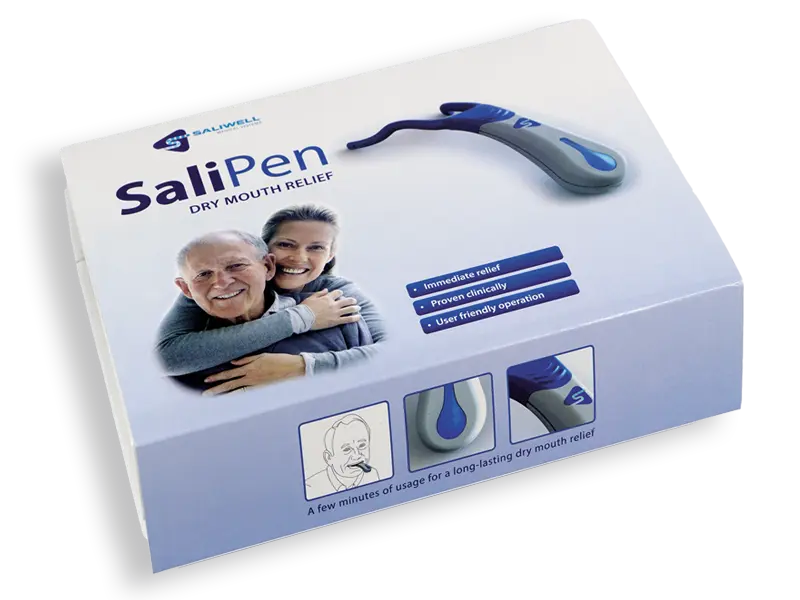
Info on dry mouth
Dry mouth: its causes and treatments
Info on dry mouth
Dry mouth: its causes and treatments
Dry mouth, also known as xerostomia, is the condition of not having enough saliva to keep in the mouth wet. Dry mouth can happen to anyone occasionally—for example, when dehydrated, nervous or stressed. However, when dry mouth persists, it can become extremely bothersome and increases the risk for tooth decay.
There are several major known causes for dry mouth.
Common causes
- Alzheimer’s disease.
- Autoimmune disease (Sjögren’s syndrome).
- Bone marrow transplantation.
- Head & neck radiotherapy.
- Medication-induced side effect – see list of medicines.
Other causes
- Chronic Hepatitis C.
- Depression.
- Drug abuse.
- HIV infection.
- Long COVID.
- Others or unknown (idiopathic) causes.
The most common symptoms of dry mouth include:
- A dry or sticky mouth.
- Trouble speaking, chewing or swallowing.
- Bad taste, bad breath (halitosis).
- Need to moisten the mouth often (including during the night).
Other symptoms and signs may include:
- A burning feeling in the mouth.
- A dry feeling in the throat.
- Ropy saliva.
- Cracked lips.
- A dry, rough tongue.
- Mouth sores.
- Fungal infections in the mouth.
Common consequences are:
- Fatigue.
- Depression.
- Poor quality of life.
Saliva acts in the mouth like oil does in an engine.
The tongue and lips cannot function smoothly without enough saliva. Thus, one finds it hard to speak and chew food, especially dry and hard food.
Worse than that, one may not get the needed nutrients if chewing and swallowing certain foods are hampered.
In addition, saliva protects the teeth and the oral soft tissues. It fights bacteria and other microbes and repairs small wounds. When the amount of saliva is too little, tooth decay or other infections in the mouth can develop.
- Saliva helps digesting food.
- Saliva protects teeth from decay.
- Saliva lubricates the mouth and allows free movement of the jaws and tongue.
- Saliva makes it possible for you to chew and swallow.
- Saliva prevents bad breath.
- Sip water or sugarfree drinks more often.
- Avoid drinks with caffeine, such as coffee, tea, and some sodas. Caffeine can dry out the mouth.
- Sip water or a sugarfree drink during meals. This will make chewing and swallowing easier. It may also improve the taste of food.
- Be aware that spicy or salty foods may cause pain in a dry mouth.
- Chew sugarfree gum or suck on sugarless hard candy to stimulate saliva flow; citrus, cinnamon or mint-flavored candies are good choices.
- Don’t use tobacco or alcohol. They dry out the mouth.
Remember, if you have dry mouth (xerostomia), you need to be extra careful to keep your teeth healthy. Make sure you:
- Gently brush your teeth at least twice a day
- Floss your teeth every day
- Use toothpaste with fluoride in it. Most toothpastes sold at grocery and drug stores have fluoride in them
- Avoid sticky, sugary foods. If you do eat them, brush immediately afterwards
- Visit your dentist for a check-up at least twice a year. Your dentist might give you a special fluoride solution that you can rinse with to help keep your teeth healthy

SaliPen® dry mouth treatment
Increase saliva production for dry mouth relief by gentle stimulation.

